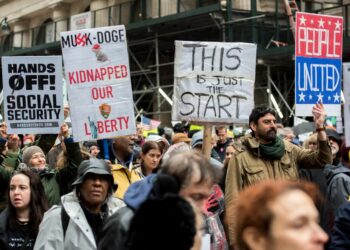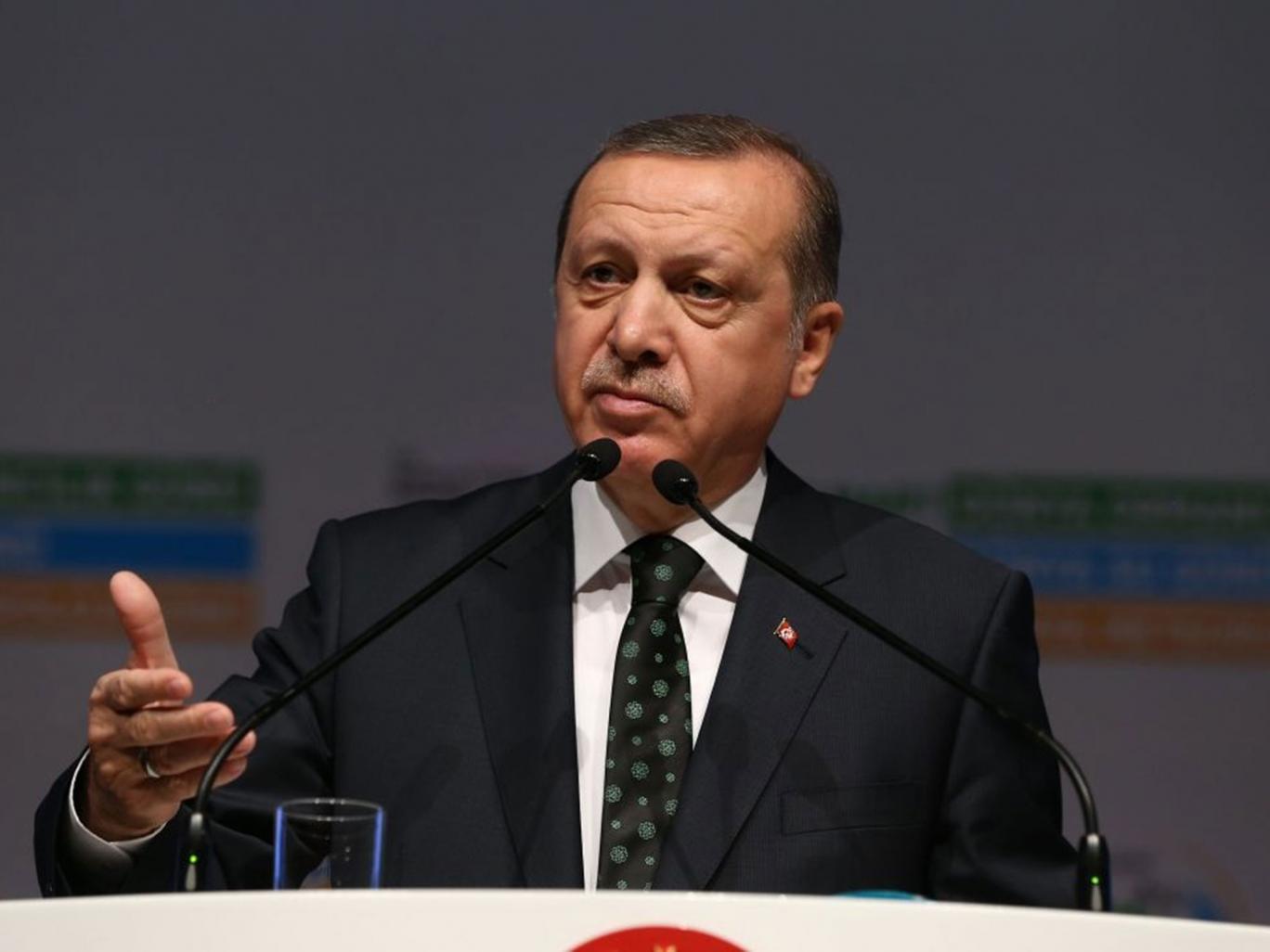Omar’s daydream was suddenly interrupted with loud ringtone coming out of his pocket. When he reached his cellphone, Omar distanced the phone as far away from himself as possible to see who on the other end of the call was. Without the glasses, in addition to the glare of the sun, the ringtone stopped before Omar could identify the caller.
Three seconds later, another call. Omar picked up the phone this time.
– Grandpa, they took the mommy away.
– Wait, wait. What? Who are they?
11 years old Abdullah, crying, could hardly speak. But now that his mother is absent and as the eldest of the family, he needed to stay strong. He quickly got himself together.
– Grandpa, some police came over a little while ago. They looked for the father. He is at work. They took away mommy.
– Have you called your father?
– I did, but he didn’t answer. Then I called you.
– Ok, lock the door. Don’t answer to anyone. I will be there as soon as I can. Okay?
Omar had to make a 4-hour drive to his daughter’s house.
In the meantime, Abdullah was making repeated calls to his father. Eventually, his father Seyfettin picked up the phone and learned about his wife. He asked permission from his boss and headed back home. He would ask their neighbor to take care of the kids while he goes to the police to inquire as to why his wife is rounded up. This was the plan he played in his mind.
As soon as he arrived at home, police immediately showed up on the door and asked Seyfettin to get on the police car.
– Why am I getting arrested?
– We are doing what we are told. You can talk at the [police] department.
– Hey, what about the kids?
– We are doing what we are told to do.
Seyfettin knew that it could take at least two weeks for any charges to be filed against him or his wife. Under the state-of-emergency rule, anyone can be detained up to 30 days without any charges. Visitation is limited and finding a lawyer is almost impossible. The only thing Seyfettin thinks is not how he can get out of the prison, but who would take care of the kids.
Omar arrived at the house several hours after the police took both parents of Abdullah. His 6 years old sister and 8 years old brother did not understand what was going on. Neither did Abdullah. But he had to act as if he knew things were under control. As he consoled his hungry sister, grandpa Omar arrived.
All three rushed to hug their grandpa, the only person whom they can count on now. Omar struggled to wipe his tears away, hoping that the kids won’t notice something was wrong. He also had to fabricate a story as to what was going on and when their parents would be back. The first job was to feed the kids. It was the start of a family drama, in which grandfather was babysitting kids while his daughter and son-in-law were sitting in a jail somewhere.
That night was the longest for Omar, who was sleeping in the same bed with the kids. The rise of the sun was hardly a new day for the family. It was, however, the fresh start of an ordeal that many, perhaps thousands of families, were going through across the country. Shattered families, children without supervision and uncertain future. These were the people who even did not read newspapers but now accused of overthrowing a government. The government was so determined to lock up suspects that they even emptied prisons by releasing 39,000 convicts to make space for newcomers, none of whom was convicted yet.
The next day, the police called Omar to inform about the fate of his daughter and the son-in-law. He was told that they were taken to Adiyaman, a neighboring province, where they previously worked at a school linked to the Gulen movement.
It was not clear what the charges were. How many days were they going to stay under custody? Would they be provided a lawyer? Would visitation be allowed?
15 days passed without any news. Both parents were being kept in a police custody. That dank and dark rooms are the “best” venue to interrogate suspects — in any way police want — and deny anyone to visit them. Once they are allowed for a prison, it is hard to torture inmates through prison guards — some of whom might not be loyal to the government.
Following 15 days of non-stop interrogation, both parents were arrested pending trial and sent to a prison. Lawyers ask nearly $100,000, without promising if their clients will walk out free, warning that they could be thrown out of their bars if they take up such a politically sensitive case. And hence the expensive price tag.
Prosecutors told both parents at the court that they worked at a school linked to the Gulen movement in the past and that they were part of a terrorist group. They were officially charged with “establishing a terrorist group” and “managing a terrorist organization.”
Omar had started to realize that the parents were not coming home anytime soon. After weeks of babysitting children, Omar thought it would be the best if he took the kids away. He moved children’s furniture and stuff to his house. He had to register the kids for a new school year, buy them clothes and textbooks. A 70 years old grandpa was now committed to taking care of three orphans.
Seyfettin’s arrest also hit hard on his family. His father was already confined to bed, tended by Seyfettin’s elder brother, Abdulkerim. Upon hearing the news of Seyfettin’s arrest, right arm of Abdulkerim was also paralyzed.
Husband of Seyfettin’s sister was working as a janitor in a Gulen-linked school. He was detained and released pending trial. He was asked to sign at the police station every day as the investigation into him was going on. Imagine a justice system that goes after a janitor because he worked at a Gulen-linked school.
Omar’s was also not immune to the police search. When anti-terrorism police units stormed his house, Omar asked for a court decision. The police chief:
– I guess you don’t watch the news. We have OHAL in place since July. No need for a court decision. It’s the governor’s order.
OHAL is a Turkish abbreviation for the state of emergency rule. In Erdogan’s words, a “gift from God,” or “windfall from heavens.”
No stone was left unturned in Omar’s house. The next target was Omar’s brother, Halit.
Halit was an imam at a local mosque. He was dismissed from his job after the coup attempt. House of Halit, who was living with his 90 years old mother, was also stormed by the police. They found Qur’an translated by Ali Unal, an imprisoned columnist with now-defunct Zaman newspaper. Halit was also detained on charges of being a member of a terrorist group.
This is the tale of Omar. A grandpa who was supposed to spend time with his grandkids. But he is now parents of three kids. A father to an imprisoned daughter and son-in-law. And a brother to an imam jailed over Qur’an.






















